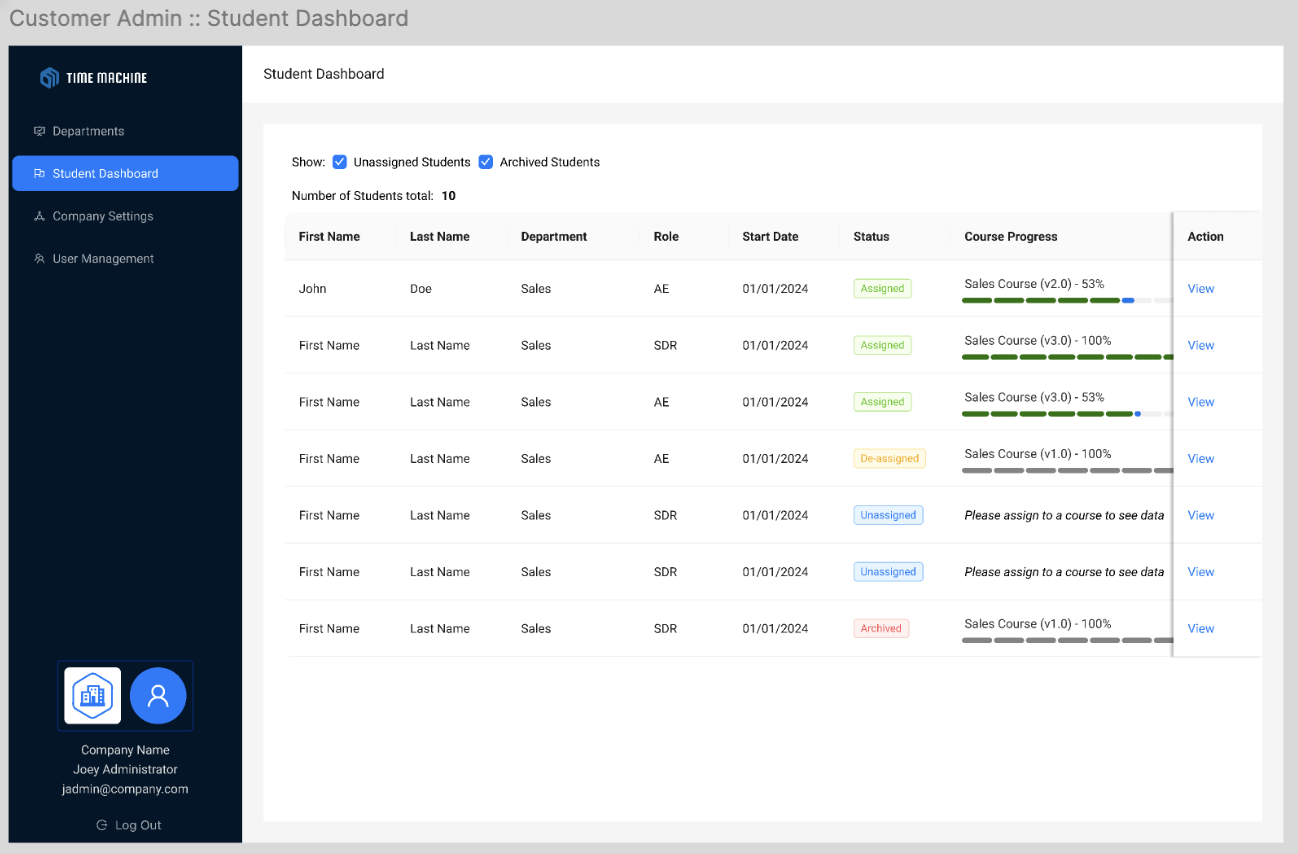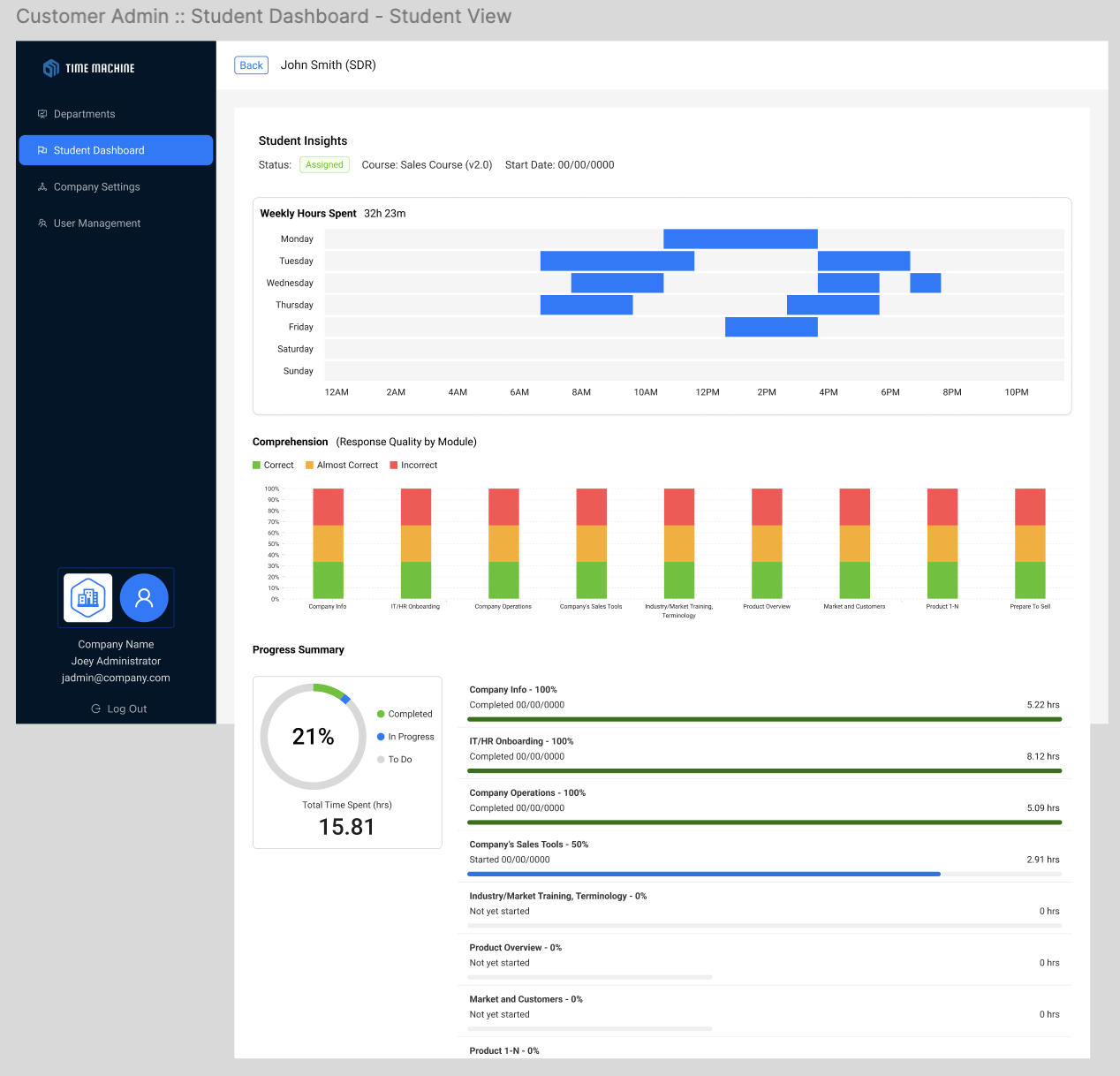After building and scaling global sales organizations across 50+ countries and personally onboarding more than 500 sales reps, we've witnessed a troubling pattern that's costing companies millions: the catastrophic failure rate of sales development representatives in their first year.
83%
of SDRs fail within their first year
This isn't just a statistic—it's a crisis that's undermining growth strategies and burning through capital at an alarming rate. Let's break down the real cost of this problem and explore how forward-thinking companies are using AI to revolutionize their approach.
The True Financial Impact
When we dig into the numbers, the financial impact is staggering. Consider a typical scenario:
- Average SDR salary: $50,000 - $70,000
- Recruiting costs: $5,000 - $15,000 per hire
- Training investment: $10,000 - $20,000 per rep
- Lost productivity: 6 months of suboptimal performance
- Opportunity cost: Missed revenue from delayed ramp time
For a company hiring 20 SDRs annually, with an 83% failure rate, you're looking at approximately $1.5 million in direct costs alone—not counting the immeasurable impact on team morale, customer relationships, and market momentum.

Why Traditional Onboarding Fails
Having implemented onboarding programs at companies from seed-stage startups to global enterprises, we've identified five critical failure points in traditional approaches:
1. The Information Overload Problem
New reps are typically bombarded with product documentation, sales methodologies, competitive battlecards, and process training—all within their first two weeks. Research shows that humans retain less than 20% of information presented in traditional training formats.
2. Lack of Practical Application
Reading about objection handling is vastly different from facing a skeptical prospect. Most programs fail to provide sufficient real-world practice before reps are thrown into live situations.
- Cameron Orr
3. One-Size-Fits-All Approach
Every rep brings different experiences, learning styles, and strengths. Yet most onboarding programs treat everyone identically, missing opportunities to accelerate top performers while providing extra support where needed.
4. Insufficient Manager Bandwidth
Sales managers are stretched thin. With quotas to hit and existing teams to manage, they simply don't have the 20+ hours per week needed to properly coach new hires through their critical first months.
5. Delayed Feedback Loops
In traditional models, reps might wait days or weeks for coaching on their calls. By then, bad habits have formed and confidence has eroded.
The AI Revolution in Sales Training
After years of struggling with these challenges, we've seen a breakthrough in how AI can transform the onboarding experience. Here's what's now possible:
Infinite Practice at Scale
AI-powered role-play allows reps to practice hundreds of scenarios before their first live call. They can face every objection, navigate complex negotiations, and perfect their pitch in a safe environment.

Personalized Learning Paths
Modern AI systems can assess each rep's strengths and weaknesses in real-time, automatically adjusting training content and difficulty. A rep struggling with technical questions gets more product training, while someone weak on discovery gets targeted questioning techniques.
24/7 Coaching Availability
Instead of waiting for weekly 1:1s, reps can get instant feedback on their performance. AI coaches never tire, never judge, and are always available—even at 2 AM when that anxious new rep wants extra practice.
Data-Driven Performance Tracking
Every interaction is analyzed, providing managers with unprecedented visibility into rep development. You can spot struggling reps before they fail, not after.
Real Results from the Field
The impact of AI-powered training isn't theoretical. We're seeing transformative results:
- 75% reduction in time to first meeting booked
- 60% improvement in quota attainment rates
- 80% decrease in manager time spent on basic training
- 90% increase in rep confidence scores
2 Weeks
Average time to productivity with AI training (vs. 6 months traditional)
Implementation Best Practices
Based on our experience implementing AI training across hundreds of organizations, here are the keys to success:
1. Start Before Day One
Give new hires access to AI training modules during their notice period. They arrive already familiar with your product and methodology.
2. Blend AI with Human Touch
AI accelerates learning but doesn't replace human connection. Use it to handle repetitive training while managers focus on strategy and motivation.
3. Measure Everything
Track time to first activity, quality scores, confidence levels, and ramp time. Use data to continuously optimize your program.
4. Create Certification Milestones
Build clear progression paths with AI-validated certifications. Reps know exactly what they need to master before moving to the next stage.
The Path Forward
The 83% SDR failure rate isn't inevitable—it's a symptom of outdated training methods in a rapidly evolving sales environment. Companies that embrace AI-powered training are already seeing dramatic improvements in rep retention, productivity, and revenue generation.
- Ike Kavas
The question isn't whether AI will transform sales training—it's whether your organization will lead or follow in this transformation. With the cost of failure so high and the technology so accessible, the time for action is now.